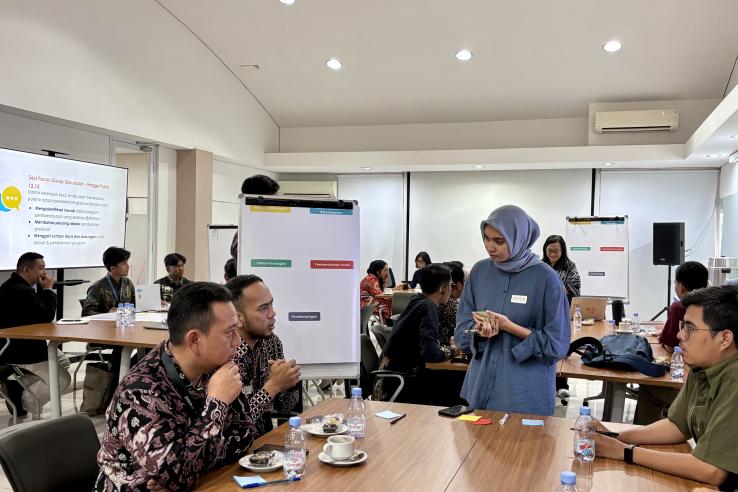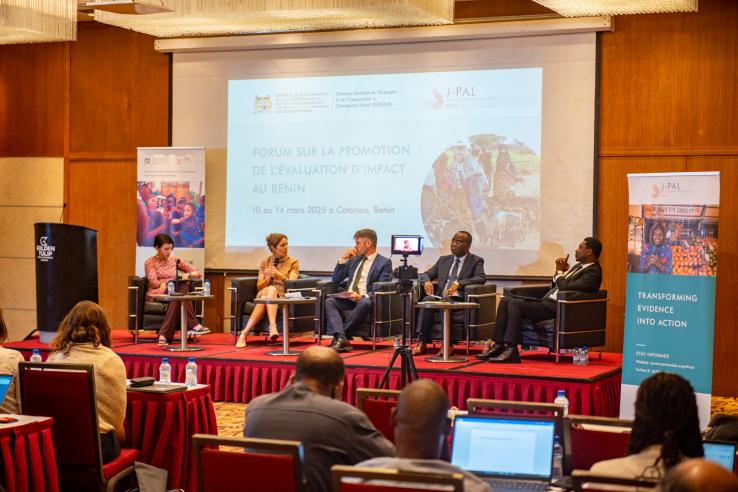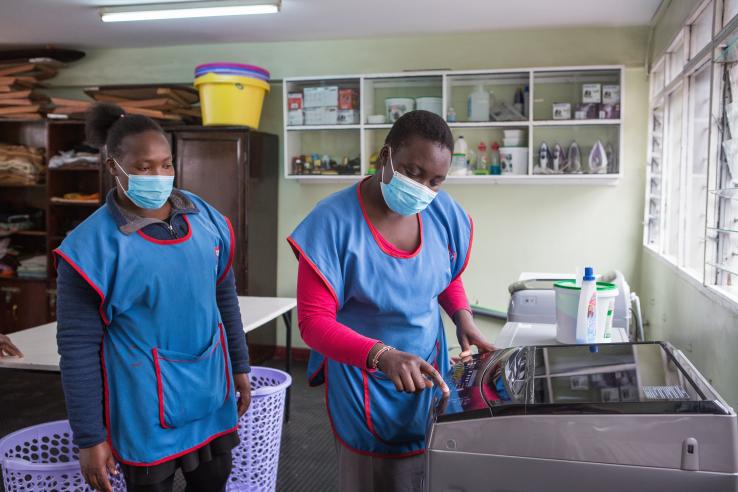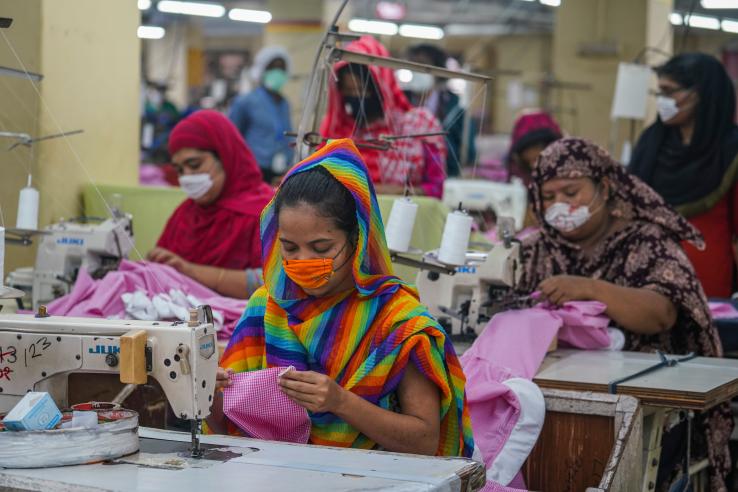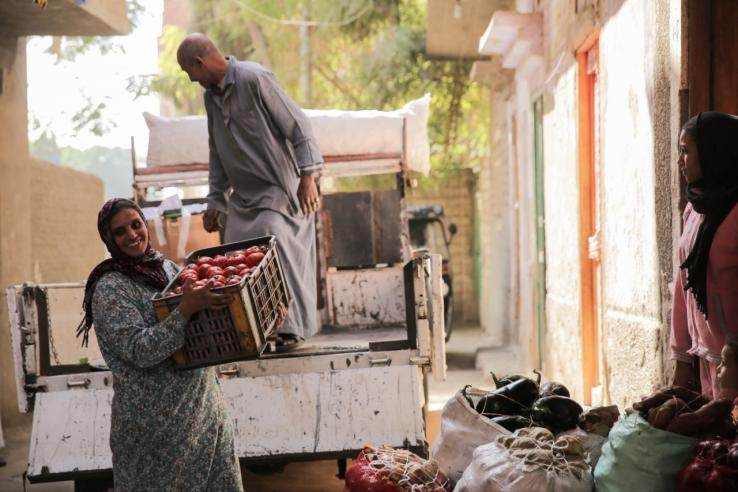Displaying 4726 - 4740 of 8448
Resource
Layout Page
Africa will experience transformative population growth from approximately 1.4 billion today to 3.3 billion in 2075. Job creation and access to decent work pose immense challenges. Currently, 85 percent of employment in sub-Saharan Africa is informal, and 82 percent of tertiary educated young...
Blog
On October 8, J-PAL Southeast Asia hosted a workshop gathering several of Indonesia’s zakat management organizations (Organisasi Pengelola Zakat or OPZ) to explore how zakat, faith-based charitable funds, can further support poverty alleviation through the Graduation approach. In this blog we...
Resource
Layout Page
In March 2025, J-PAL Africa and the Ministry of Development and Coordination of Government Action (MDC) launched a multi-year partnership to support the generation and use of evidence in public policy across Benin. The collaboration builds on the country’s growing commitment to evidence-informed...
Blog
Recent findings from the Baby's First Years study reveal mixed impacts: while cash support helped families and children in some narrow ways, it did not have broad effects across other aspects of family life. Several factors should be considered when interpreting these results.
Evaluation
Although conflicting recommendations have been issued, recent evidence suggests that face masks may significantly reduce the spread of SARS-CoV-2. However, questions remain on how to effectively promote mask adoption. Research are conducting a randomized evaluation to evaluate the impact of free mask distribution combined with educational interventions on mask adoption in Kenya.
Evaluation
Researchers conducted two randomized evaluations to test the impact of coaching teachers on integrating CAL in their elementary and middle school mathematics instruction in two large, diverse school districts in the United States. The intervention led to improved math performance in one evaluation and mixed results in the other, with test-score gains observed in classrooms with higher weekly CAL practice time.
Evaluation
In many countries, rural populations access social services through decentralized systems that hire community-based workers with high monitoring needs, leaving little time for supervisors to perform other essential functions. Researchers are evaluating the impact of a phone-based e-monitoring app and organizational structure on frontline worker performance and service delivery in Sierra Leone.
Update
J-PAL Updates
J-PAL North America's November newsletter features a new blog post on interpreting results from the Baby's First Years study, a feature on our 2025 Research Staff Training, and our recent Evidence Matters Convening in Seattle, WA.
Evaluation
Researchers assessed the impact of outreach on Medicaid retention; outreach messages provided a reminder to renew as well as information about how to obtain free one-on-one assistance with renewal processes from health insurance navigators. Outreach using pre-recorded calls prevented denials due to procedural reasons and increased Medicaid renewal rates by 1.0 percentage point across the full study population, by 4.0 percentage points for Tribal members, 2.1 percentage points for children, and 1.9 percentage points for people with chronic conditions.
Evaluation
Researchers partnered with Innovations for Poverty Action and Bangladeshi policymakers to test various strategies to increase mask-wearing and assess the impact of community mask wearing on SARS-CoV-2 infection rates. They found that a four-part intervention tripled mask usage and increased physical distancing. Further, this increase in mask-wearing reduced symptomatic SARS-CoV-2 infections. When surgical masks were employed, 1 in 3 symptomatic infections were avoided for individuals 60+ years old—the age group that faces the highest risk of death following infection. This was the first large-scale randomized evaluation to demonstrate the effectiveness of masks in a real-world setting.
Evaluation
Researchers partnered with the Government of Pakistan to conduct two parallel randomized evaluations to test the impact of providing supplemental teaching materials on the quality of student learning and teachers’ effectiveness. Overall, the eLearn Classroom intervention improved student achievement and students’ attendance for grade 8 students. Conversely, providing grade 6 students with individual eLearn Tablets worsened their test scores.
Evaluation
In partnership with three microfinance institutions (MFIs), researchers conducted a randomized evaluation to measure the impact of providing loans, cash grants, or in-kind grants on microentrepreneurs’ business decisions, outcomes, and overall welfare. All three types of capital assistance led to increases in business and economic outcomes, especially for women. Impacts were concentrated among the best-performing recipients of each type of assistance, and researchers found that observable characteristics were the same among those top-performers across all three groups. This suggests that personal characteristics are more important than the type of assistance in predicting the effectiveness of capital assistance.
Evaluation
Following a series of evaluations of the Graduation approach in 15 other countries, researchers are now evaluating the impact of the Graduation approach on the livelihoods of the ultra-poor in Upper Egypt.
Evaluation
Researchers worked with First Valley Bank in the Philippines to evaluate the impact of varying the interest rate and account ownership requirements on demand for commitment savings accounts. While savings account take-up was 23 percent, neither the interest rates nor the ownership requirements affected individuals’ demand for accounts.

